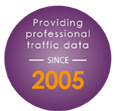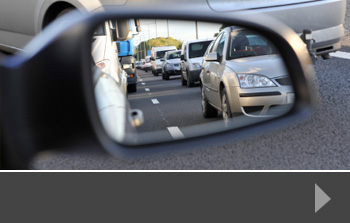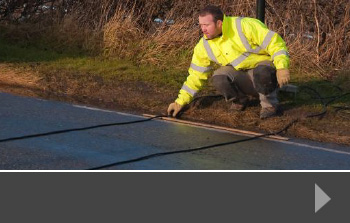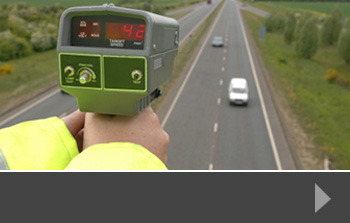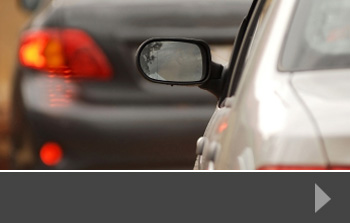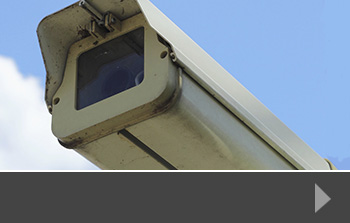Pavement parking fines could be extended across England and Wales
It’s thought that the Department for Transport is considering extending the £70 fine for parking on pavements to the whole of England and Wales. Currently, only London has this penalty in place, but parking surveys show that it has become a bigger problem in recent years, with cars limiting access for pedestrians, those with visual impairment, the disabled and people with pushchairs or buggies.
Improving pedestrian safety
As parking becomes an increasing problem – whether it is because people are parking to go to the shops, or because most homes have more than one car and urban parking is sparse – local authorities are looking for ways to manage this issue so that pedestrians can stay safe. We have all been in the position of having to walk on the road in order to get round a car that’s parked on the pavement, and this is particularly dangerous if you are with small children, or you struggle with obstacles like the kerb because you are in a wheelchair or electric scooter.
Parking surveys and a re-think
It could be that parking in our towns and cities needs a re-think anyway. The UK’s urban areas have a lot of narrow streets, and parking on the pavement is often the only way to leave enough space in the street for vehicles to pass. This is particularly important for allowing emergency vehicles to access homes or businesses in the area. If local authorities were to ban pavement parking on streets like these, they would have to provide or suggest parking elsewhere, as parking cars fully on the street could impede access.
The same is true for new developments – it’s important that residents’ parking needs are taken into consideration so that streets in modern neighbourhoods are still safe for the families that live there. Good parking planning means balancing the needs of vehicle drivers with the needs and safety of people using the pavements.
Bespoke parking surveys from RDS
If you’re concerned about parking in your development, or you want to find out more about how, where and when people park, talk to us. At Road Data Services, we conduct a wide range of accurate surveys that help developers, planners and other transport professionals to make informed decisions about traffic and journey planning, pedestrian safety and parking efficiency. To find out more about how we can help, contact us today.
One of the unavoidable consequences of more vehicles on the road is the additional parking that’s needed. Certainly, this is always a key issue for commercial developers – whether they are building retail, commercial or residential property. Parking surveys show that our parking habits are changing and that, typically, there just isn’t enough space for everyone to leave their vehicles.
Today’s parking problems
Drivers in the UK are only too aware of the parking problems they face. Town centre parking, in particular, can be difficult because of finite space, and although many towns offer a Park and Ride service, this doesn’t always cater for the needs of all drivers. There’s a significant amount of time – studies suggest perhaps as much as a day a year per driver – wasted just driving round looking for a parking space. And of course things get worse during busy shopping or tourism periods.
What’s more, as our cars have become longer and wider, parking spaces in older car parks are more difficult to access and so whilst you might be able to find a space, you can’t always get your car into it.
So what might change?
Car manufacturers are all involved in developing and testing the next big thing in driving – autonomous or self-drive vehicles. They know that in order to convince the buying public to get behind this new technology, they need to offer real, practical advantages as well as a safe driving experience.
That’s why Jaguar Land Rover is currently testing its self-drive valet technology. The company understands that parking is one of the things that drivers hate the most, so it’s looking at ways it can make life easier. The idea behind the valet is that it can drop you off where you need to be, and then go and find a parking space itself. When you’re ready to leave, you just send a signal to the car and it un-parks itself and comes to collect you.
What are the benefits of this? Well, it saves time for the driver, who can get to an appointment on time without worrying about having to leave an hour earlier in case there’s no parking. It doesn’t matter how far away the car parks, because there’s no need to walk to your destination from the parking spot. Your car can park in a tighter space than you might choose, because no-one has to get in or out of the car. In fact, observers of this new technology think that this might lead to dedicated parking lots, where self-drive cars can park closer together, making better use of the space than is currently possible.
How can we help?
At RDS, we carry out a range of parking surveys so that local authorities, development management companies and new development projects can see current trends in parking behaviour and make changes or plans where necessary to reduce the congestion or issues created by parking. If you’d like to talk to us about this, or any of our pedestrian or traffic survey services, contact us today.
Parking has become a significant issue for many councils across the country. The increase in the number of cars per household, along with constraints on developing land for parking purposes, and the increase in commuters parking near stations with access to large cities has meant that many need the advice of a professional parking expert who can survey and report on the thoughts and concerns of everyone involved.
Parking case study: Manchester
A Bill currently working its way through Parliament is designed to prevent drivers from parking on pavements. In large cities like Manchester where space is at a premium, pavement parking can certainly be a problem – but if it is banned, where will drivers park instead? Council parking policy is usually to ensure that sufficient parking is available for all, that residents’ right to park near their homes is protected, and that parking is not allowed where it will be dangerous or cause congestion for other road users.
In an urban setting, parking on pavements happens in a number of places:
Residential areas where no off-street parking is available
Roads near to rail stations, tram stations or other public transport links
Town centres where parking charges may be high and provision of free parking is low
Industrial estates where parking spaces are insufficient for the number of workers
Pavement parking causes a range of difficulties, particularly for those who need to use the full width of the pavement safely, including those with disabilities, those with guide dogs, parents with pushchairs and more. Reports from Manchester suggest that poor parking often pushes pedestrians on to the road, with all the dangers that entails.
How can things improve?
Parking on pavements has been banned in London for several decades, and councils use a variety of tactics, including numberplate recognition to identify and fine anyone breaking the law. Should the ban extend to other towns and cities, it may provoke a council parking policy review, to determine the impact of a pavement ban, and how to accommodate those road users elsewhere.
Parking surveys from RDS
At Road Data Services, we have the expertise and understanding to conduct full parking surveys to help you understand the habits of drivers in your area, the potential problems parking can cause and to supply the data to help you plan for the future.
Our surveys can be designed and run as stand-alone projects, or in conjunction with our other services such as journey time or traffic count surveys – giving you a complete picture of the road use in your area.
To find out more, please contact us today.
With towns and cities across the UK competing for businesses to choose them as a location for office or manufacturing space, it’s vital that they look at the key areas of importance to those businesses. For many, it’s the ease of access to business parks or central areas, along with a supply of affordable housing, skilled people and good facilities. Towns and cities that struggle with traffic management could get left behind.
Why commission a traffic survey?
There are many reasons why developers, councillors and planners need to have accurate and up-to-date information on the traffic in their area. Planning a new business park on the outskirts of town may attract business, but councils also need to keep local people and existing businesses happy, so the ease of travel to and from a new development, alongside a clear understanding of parking issues is vital. This is knowledge that should be acquired in the early stages of development, rather than as an afterthought.
Parking is often a problem, both for cities that are attracting large businesses, and towns where parking options are often limited. Many towns address this problem by developing park and ride schemes, which require land at the edge of the business area, but reduce the amount of traffic travelling through the centre of town. A parking survey can help to ascertain the reasons people are parking in a certain area, how long they stay for and what other parking options they would be prepared to consider.
Pedestrians and cyclists are just as important when assessing business needs. Greater numbers of people are choosing to cycle to work, or use public transport and walk. This means that consideration must be given to safe places to cross the road, cycle lanes that separate cyclists from other traffic, and ways of ensuring public transport can run smoothly and on time. All these issues help people to get to work more easily, making them happier to work in a specific location and therefore easier for businesses to recruit.
Traffic surveys from Road Data Services
Our bespoke surveys are designed to help you gather the information you need for your project. Whether you are expanding an existing business area, planning a new development, or struggling to manage increased traffic numbers, you need precise data that gives you a clear picture of what’s happening right now.
We can design and carry out a wide range of surveys including pedestrian and parking surveys, and report back to you with easily-understandable data to help you take informed decisions. Contact us today to find out more.
It’s a common problem in key commuter areas – particularly around tube and train stations – but parking surveys could help residents and local people ease the problem of cars clogging the street during the week.
Avoiding parking congestion
For example, Oxford County Council commissioned a parking survey for a specific part of the city where commuters use local street parking which inconveniences local people, makes it difficult for traffic to pass along certain roads and can be dangerous for pedestrians, with no clear line of sight when crossing the road.
Parking surveys like this provide important data with which councils can make decisions such as adding double yellow lines to roads, implementing on-street parking restrictions or even making some roads available for residents’ parking only.
In cases like this, a good quality parking survey will make regular counts of parking in targeted streets at different times of the day and different days of the week. This will give a rounded view of the situation so that councils and other interested parties can see what trends appear and look at the causes of what is effectively parking congestion.
Understanding parking needs
This type of survey is also useful during the planning of new developments, particularly those that will build on existing parking, or are designated for areas where parking is already a problem. Along with an understanding on the impact that additional traffic or changed road routes would have, developers and local planners need to ensure that adequate parking is provided, and consider the impact street parking may have on local residents.
A parking survey is tailored to the needs of the council, developer, business or organisation commissioning it. That means it gathers the data that you need to be aware of, allowing you to make decisions that are based on fact and professional analysis.
Parking surveys from Road Data Services
At RDS, our bespoke parking surveys allow you to see exactly what is happening in the areas you target. With data gathered over a range of times and days, you get a clear picture and accurate data that allows you to take responsible and reasonable decisions.
To find out more about our services, and to ask about creating a parking survey for your requirements, contact Road Data Services today.
Parking is a continual source of controversy at many hospitals – both availability and price. At the University Hospital of North Staffordshire, however, it’s availability that has been the biggest issue.
Parking survey? Just ask residents!
The Hartshill site is home to the county’s biggest hospital, and when plans for its construction were originally submitted, they included a large multi-storey car park. When the hospital was built, however, only a three-storey car park was completed. This doesn’t provide enough parking for those using the hospital, which includes up to 7,000 staff alone. This has resulted in residents on surrounding streets becoming frustrated with staff and visitors parking outside their homes from 7am until the early hours of the morning.
Parking review commissioned
Hospital management says it is all too aware of the parking issues – both for staff, patients and visitors, and for local residents. It has commissioned a parking survey and review that will look at the current state of play as far as parking is concerned and make some suggestions and options for increasing parking capacity quickly and for the long-term. As building work is still continuing at the site, parking places are often unavailable, so it is thought that a new multi-storey car park may be the best option. In fact, reports suggest that the hospital has already contacted the local council to talk about creating a new car park.
Parking issues often overlooked
Although planning applications for large developments like hospitals or shopping centres must include adequate parking facilities, it is common for these parking options to change once regular use of the development takes place. A parking survey before planning applications are submitted can help to ensure that developers make the best possible provision from the very beginning. Equally, if parking becomes an issue once the development is complete, a survey of journeys, usage and parking can help to improve things for customers or users, encouraging more people to use the development and improving relations with the local community.
Parking survey data from Road Data Services
Talk to us about how our professional data collection and analysis services can help you mitigate parking problems. We work with local authorities, planners and developers to help reduce the impact of traffic in and around your development, and to improve parking facilities wherever possible. Call us today to find out more.

